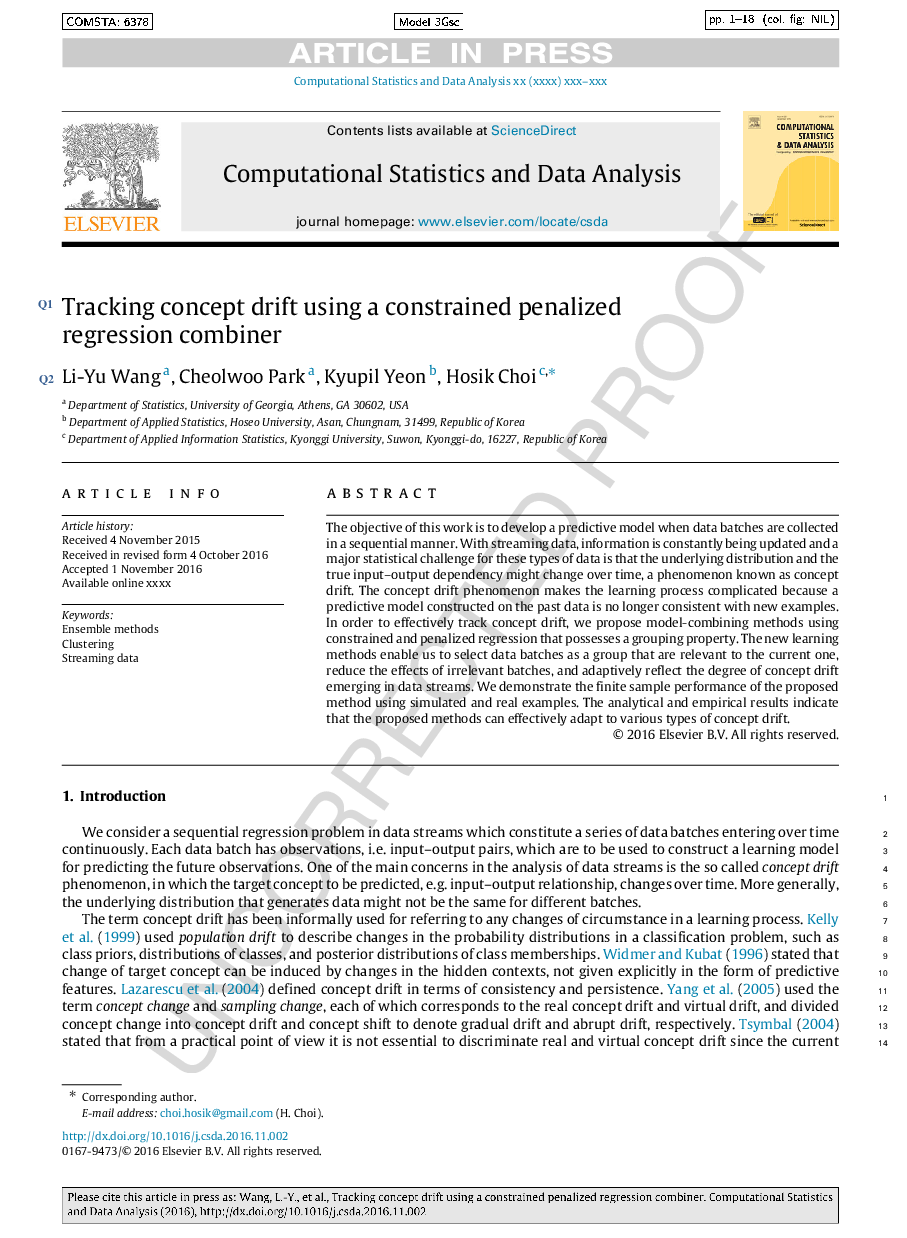| Article ID | Journal | Published Year | Pages | File Type |
|---|---|---|---|---|
| 4949387 | Computational Statistics & Data Analysis | 2017 | 18 Pages |
Abstract
The objective of this work is to develop a predictive model when data batches are collected in a sequential manner. With streaming data, information is constantly being updated and a major statistical challenge for these types of data is that the underlying distribution and the true input-output dependency might change over time, a phenomenon known as concept drift. The concept drift phenomenon makes the learning process complicated because a predictive model constructed on the past data is no longer consistent with new examples. In order to effectively track concept drift, we propose model-combining methods using constrained and penalized regression that possesses a grouping property. The new learning methods enable us to select data batches as a group that are relevant to the current one, reduce the effects of irrelevant batches, and adaptively reflect the degree of concept drift emerging in data streams. We demonstrate the finite sample performance of the proposed method using simulated and real examples. The analytical and empirical results indicate that the proposed methods can effectively adapt to various types of concept drift.
Related Topics
Physical Sciences and Engineering
Computer Science
Computational Theory and Mathematics
Authors
Li-Yu Wang, Cheolwoo Park, Kyupil Yeon, Hosik Choi,
